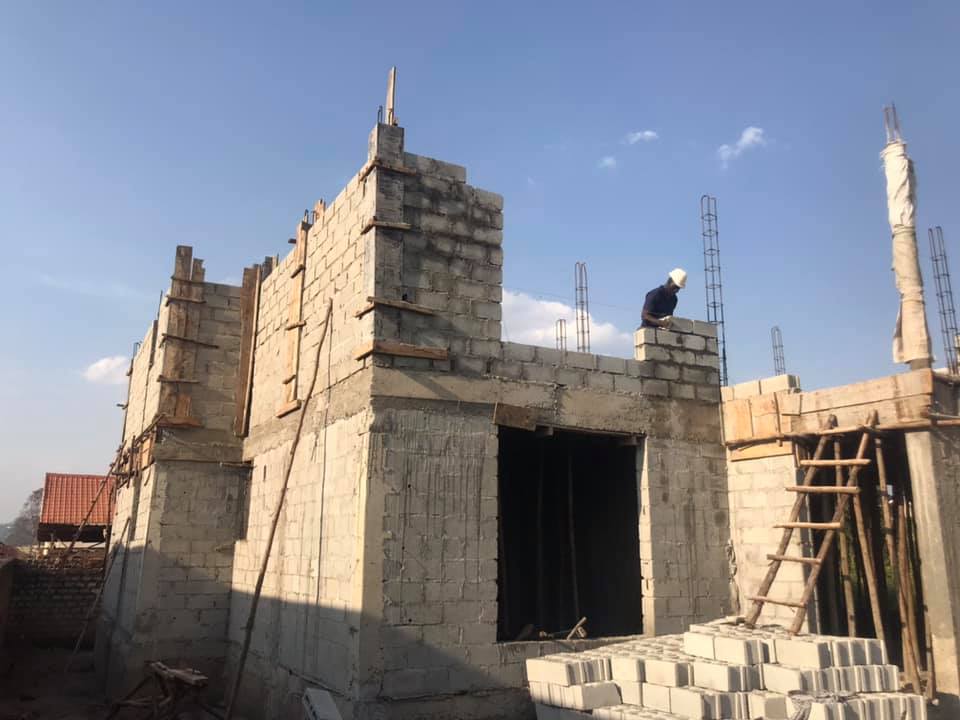By Denis Jjuuko
Rachael and her husband live somewhere in New York where she works as a nurse. Before the COVID-19 pandemic disrupted the world, she used to come to Kampala at least once a year to check on her relatives and projects.
Whenever she was in Kampala, she used to stay in hotels. After some time, she got tired of living in hotels with her young kids. She decided to build a block of six apartments on the land she had earlier acquired in Najjeera. When the apartments are done, her plan is to rent out five of them and keep the sixth for herself whenever she is around.
Late last year, Rachael contracted Ibra, a skilled builder to start construction. Ibra and Rachael worked out a plan where he is paid per phase. Every day, Ibra calls Rachael on WhatsApp and updates her on the progress made. Using WhatsApp’s video call feature, Rachael sees what is happening at her site in real-time, makes inquiries on issues that may not be clear and approves changes, if any.
This arrangement has been perfect for Rachael as well as for Ibra. On the site at any one time, about 30 young men and a few women earn money every day. The building material hardware owner has been very happy as the site’s progress means that his business has been growing.
National Water has been collecting payments for the water used. The truck driver has been delighted supplying sand, bricks, and coarse aggregate, among other materials.
Sarah, a widow and neighbour to Rachel over the last few months has been feeding the 30 young men and women with porridge in the morning and posho and beans mainly for lunch. She had never seen this windfall in a while. She has been walking with a smile of recent.
However, Rachael has temporarily stopped the construction of the apartments. She is not sure what is going on at the site. She has failed to get the latest update on the site as Ibra cannot send images and videos to her. The internet has been off in Uganda for days. When it was restored, the government kept social media blocked.
Rachael had wanted Ibra to download the Zoom app, which didn’t work as app stores are also blocked. Ibra is a skilled builder with many years of experience. However, the internet is not his thing. He reluctantly joined WhatsApp after he felt irritated by his children and now, clients like Rachael.
Until Racheal can be sure of uninterrupted communication with Ibra, there won’t be money being sent. She wants to be sure she can do spot checks at any time of the day. She wants to be involved in every stage.
Racheal’s forced decision to halt her apartments’ construction means that 30 young men and women are idle, without any work. Sarah has lost her business. The smile is gone. The truck guy is now stuck with his sand. The hardware owner’s stock isn’t moving at the speed it was. The mobile money agent where Ibra withdraws money has lost some income. Ibra is stuck too, looking for other sites.
The sad thing is that Ibra isn’t Ibra and Sarah aren’t the only people stuck. Many people are. A woman who works in Owino and has been selling her second hand clothing using social media can’t do much anymore. She has no easy way to reach her customers. Traditional media is out of reach for her. Social media had eased her way of doing business. Now it is off. Apparently, the government is unhappy that a few of its fake accounts were deleted by Facebook and Twitter, at least according to the foreign affairs minister.
However, the government’s decision to shut down the internet and social media is affecting it as well. The Uganda Revenue Authority is missing OTT tax targets and businesses failed to file their returns on time as well as sending out invoices. The telecom companies are missing money in terms of data and levies on mobile money transactions.
The internet today has become as important as food, shelter and clothing. It is the way of life of many people. It is the way through which government, businesses, individuals, and large organisations do business.
Due to COVID-19, businesses are struggling to stay afloat and the last thing they need is the internet and social media being off. The government should dispense with its pride and restore the internet fully so that Ibra and Sarah and the hundreds of people who were benefiting from Rachael’s construction site can work again.
The writer is a communication and visibility consultant. djjuuko@gmail.com










